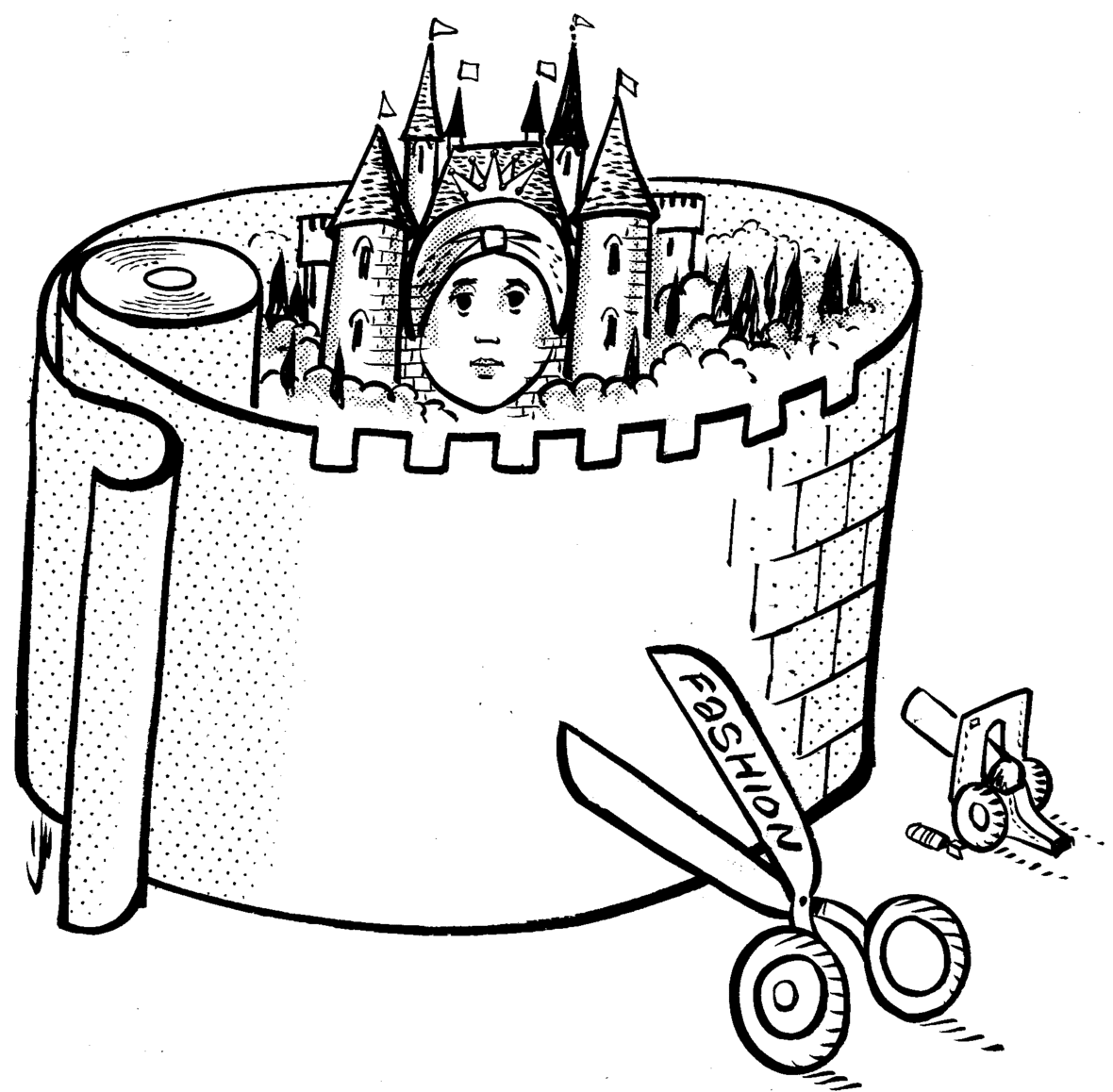
Prepare for Spring Shopping
The Santzer Rebbe zt”l explained that he had a tradition from the holy Rebbe Menachem Mendel of Rimanov zt”l that “a new style brings a new illness…”

And the Lord said to Moses, “Go to the people and prepare them today and tomorrow, and they shall launder their garments. (Exodus/Shemot, 19:10)
Once, someone came to the holy Rebbe the Divrei Chaim of Santz zt”l to ask him to pray for a family member. It seemed that the doctors were at a loss how to treat him because they had never seen this illness before; it was a new illness that did not exist before. When the Rebbe heard about this situation, he sent his Gabbai to go to the clothing stores to see what clothing styles were being sold, and if the new styles were immodest. The Gabbai reported back that the new styles being sold were indeed immodest, and then the Santzer Rebbe zt”l explained, that he had a tradition from the holy Rebbe Menachem Mendel of Rimanov zt”l that “a new style brings a new illness.”
The reason for the stringency of immodest clothing is because it causes the serious sin of gilui arayot – sexual immorality, which in turn increases the powers of impurity in the world, which in turn destroys people’s spiritual and material lives.
This is something we saw clearly in the generation of the Flood. Their sin began with women dressed immodestly, and this caused sins of immorality, as written in Targum Yonason (Genesis/Bereishit, 6:2-3), and this sin brought the Flood, as Chazal say (Bereishit Rabbah 26:5) that everywhere that sexual immorality is found, disaster comes to the world, and kills the good and evil alike.
Chazal say (Tosefta Taanit, 2:13) that after the Flood when Hashem promised that even if the people sinned again like the generation of the Flood, another worldwide Flood would not come, this promise only guaranteed that a flood of water will not come, but a flood of viruses will come.
Furthermore, when married women in Europe began to be lenient and allow part of their hair on the sides of their heads to be uncovered, a pandemic spread throughout Europe. The Tzaddikim at that time said that it was specifically this sin which caused the pandemic, and they found a hint to this in that the word מגפה (magefah = plague/pandemic) is an acronym for the words: מ’פני ג’ילוי פ’את ה’נשים – mipnei gilui peyat hanashim – because the women uncovered the side of their hair.
It is well known that in years past even gentiles would conduct themselves with a modicum of modesty in their dress and manner. About 50 years ago women began dressing immodestly. Many religious gentiles opposed the trend and sought to censure publications that featured this mode of apparel. Women of dignified upbringing, such as the Royal Family of England, did not join the bandwagon and continued to wear modest attire. However, in recent years, the advent of technological devices brought about a destruction of the boundaries of modesty and caused a spiritual Holocaust. The constant bombardment of immodest images and ideas destroyed both men and women, who drowned in this vast sea of forbidden lust.
A woman who publicly dresses immodestly draws the attention of other men, as our Sages say (Sukkah 26a) “A breach beckons the thief.” This behavior destroys the intimacy and trust between a husband and wife and is the cause of most divorces. When people are drained, spiritually and emotionally, their material fortunes dwindle as well. Many women do not possess a strong enough willpower to stay aloof of social trends and will wear the imported new styles coming from Paris and other centers of lust. Most of the time, these non-Jewish styles shortly make their way into Jewish “religious” clothing stores, with only slight adjustments in length – but with no recognition that the entire style is completely immodest to begin with, and the adjustments do not help at all to actually make the garment properly modest according to Jewish law.
This mode of dress is absolutely sinful and strictly forbidden by the Torah, and not merely a layer of ‘frum’ or religious stringency as the Yetzer Hara (Evil Inclination) would like women to believe. This Yetzer Hara is so powerful that women will follow the trend even if it means wearing short clothing in the cold, or tight painful shoes. The goal of the fashion designers is to have others look at these women with lust and temptation – a terrible sin which women may not be acutely aware of.
Oftentimes, G-d fearing women who choose to follow the modest path of our ancestors are scorned and ridiculed. This is also very sinful behavior encouraged by the Yetzer Hara. My holy ancestor the Rebbe Yehuda Zvi of Rozla zy”a, author of sefer Daas Kedoshim, once commented on this phenomenon. The verse in Proverbs, in Eishet Chayil (“A Woman of Valor,” which is traditionally recited every Friday night at the beginning of the Shabbat meal) says, “Sheker hachen, v’hevel hayofi, isha yirat Hashem – hi tithallel,” which means “Grace is deceitful, and beauty is vain; but a woman who fears Hashem shall be praised.” The Rebbe of Rozla said that the word tithallel (she shall be praised) can also be understood using the root hulel, which means “mockery.” He translated the verse thus: prior to the coming of Mashiach, the world will be turned on its head. People will find deceit to be graceful and vanity to be beautiful – but a G-d fearing woman will be a mockery.
 Jewish women need to be strong and follow in the footsteps of our holy ancestors, the Jewish women in Egypt, which was the center of lust and passion of its day. As Jews they were at a social low, downtrodden and subjected to terrible abuse. The Jewish women could have helped themselves by joining the Egyptian culture in their dress and manner and mingle freely in the crowds unrecognizable. They could have left the Jewish “ghetto” of Goshen and become assimilated among the Egyptians. They chose instead to remain faithful to our holy Matriarchs, who carved out a path of tzniut, modesty, in a decadent world. In the merit of these righteous women the Jewish Nation was worthy of Redemption.
Jewish women need to be strong and follow in the footsteps of our holy ancestors, the Jewish women in Egypt, which was the center of lust and passion of its day. As Jews they were at a social low, downtrodden and subjected to terrible abuse. The Jewish women could have helped themselves by joining the Egyptian culture in their dress and manner and mingle freely in the crowds unrecognizable. They could have left the Jewish “ghetto” of Goshen and become assimilated among the Egyptians. They chose instead to remain faithful to our holy Matriarchs, who carved out a path of tzniut, modesty, in a decadent world. In the merit of these righteous women the Jewish Nation was worthy of Redemption.
It is possible to say, that along these lines Hashem told Moshe Rabbenu before the giving of the Torah: “Thus shall you say to the house of Yaakov” – these are the women, “and you shall be unto Me a priestly nation” – as they will conduct themselves in a royal manner, as it is written “all of the glory of a princess is her modesty” (Psalms /Tehillim, 45:14), and through this they will be worthy to be “a holy nation.”
Afterwards, Hashem told Moshe: “And you shall sanctify today and tomorrow” – teach them how to keep themselves holy, now and in future generation, “and launder their garments” – that they should accept upon themselves to constantly rectify their own goal of spiritual perfection, by making sure that their clothes remain pure, along the path of modesty which has been our tradition for all generations.








Tell us what you think!
Thank you for your comment!
It will be published after approval by the Editor.